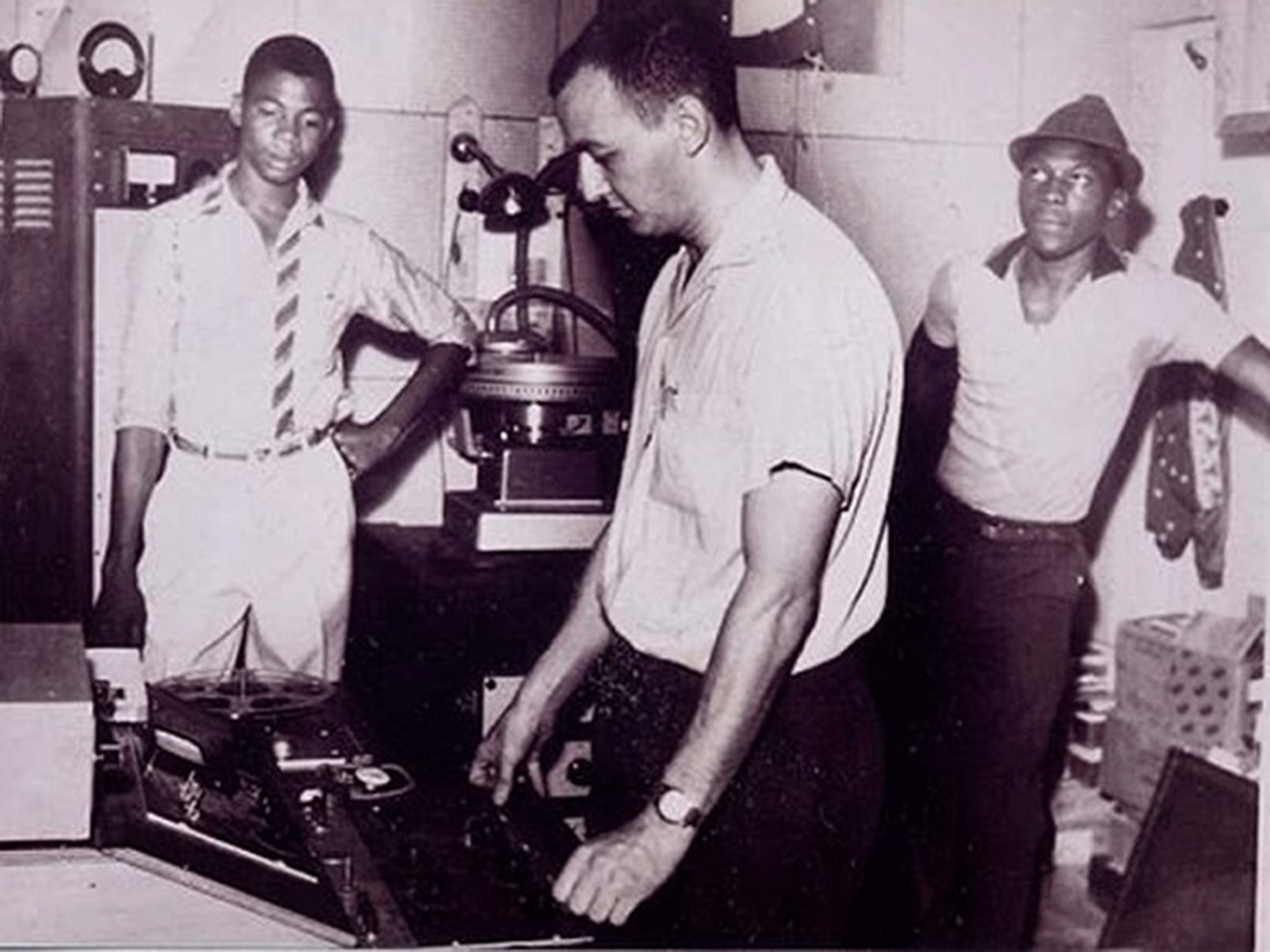Graeme Goodall: Audio engineer who became a crucial figure in reggae and helped establish Island Records
Chris Blackwell, with whom Goodall established Island Records: 'Goody was a really important man, and a great one at that'

Graeme Goodall, an Australian from Melbourne, was one of the hidden heroes of Jamaican music. “He was a wonderful guy, full of energy, and very bright, very smart. A terrific and exceptional person,” said Chris Blackwell, with whom Goodall helped establish Island Records.
“Goody”, as he was known, was involved in the technical setting-up of Jamaica’s first two radio stations; he was audio engineer on all Island Records early Jamaican releases, including Laurel Aitken’s “Boogie In My Bones”, the label’s first hit; he built the studio, set up the pressing plant and was a partner in Kingston’s earliest record company, Federal; in the UK he set up the Dr Bird and Pyramid labels, releasing classic songs, including Desmond Dekker’s “007 (Shanty Town)”, a UK hit, and “Israelites”, the first Jamaican record to make the US top 10.
Following a visit in 1962 to a Downbeat sound system event in dusty Trenchtown run by the legendary Coxsone Dodd, Goody understood the importance of the bass sound in Jamaican music: his pregnant wife Fay felt their unborn child shifting in her belly to the bass reverberations growling out of the speakers. From then on he always emphasised the bass in recordings in which he was involved.
In Melbourne Goodall had worked in radio, helping set up the outside broadcast of Queen Elizabeth’s 1954 visit to the city. He moved to London that year, aged 22. His experience in both live work and commercial radio – unknown in the UK – secured him work with IBC, a production company who made such quiz shows for Radio Luxembourg as Strike It Rich and Shilling a Second. IBC’s studio also produced records, and Goodall worked with up-and-coming artists like Petula Clark.
In 1955 he went to Jamaica to help start up a local commercial radio station. For RJR – which had personalities like Charlie Babcock, “the cool fool with the live jive” – he set up the entire technical network, the first FM station in the British Commonwealth. Discovering a pay gap, a source of resentment, between local workers and overseas “experts”, Goody consciously made friends with working-class Jamaicans, spending time at the docks learning patois, earning a reputation as a man of the people.
Returning to Melbourne after three years, Goody was quickly called back to Jamaica: his technical expertise was required by the Jamaican Broadcasting Corporation, JBC, a state-owned channel which began broadcasting in June 1959.
Almost as soon as he returned Goody, Chris Blackwell and Leslie Kong, an ice-cream entrepreneur, set up Island Records. Laurel Aitken’s “Boogie In My Bones”, a local No 1, was recorded in the early hours at RJR’s concert studio, employing the Caribs, a musical group which consisted entirely of Australians. “We’d been brought over from Surfer’s Paradise to play in Kingston’s Glass Bucket Club,” recalled Peter Stoddard, their keyboard player. “Graeme would come in and get the balances and off we went. We played on all the early Island recordings, all done at RJR.”
Goody worked with other producers, again using RJR’s studio. For Edward Seaga, later Jamaica’s Prime Minister, he made “Oh Manny Oh” by Higgs and Wilson, the first local hit to sell 50,000 copies.
After setting up Federal recording studio with his friend Ken Khouri in 1961, Goody became its chief engineer. As it was Jamaica’s only professional recording operation, Goody worked with every significant Jamaican artist of the era, including the Wailers, the Skatalites and Jimmy Cliff. The producers Duke Reid, Coxsone Dodd and Prince Buster also made their early releases at Federal, and Goody forged relationships with them.
He also taught future prominent engineers such as Sylvan Morris, revered for his work for Dodd’s Studio One label. Moving to London in 1962 with Blackwell, by 1965 Goody had stepped aside from Island.
Setting up the Dr Bird label, and then, in partnership with Leslie Kong, Pyramid, on which Desmond Dekker’s hits appeared, Goody utilised his Kingston street connections, calling on the likes of Lee “Scratch” Perry, Bunny Lee, Harry J, and Joe Gibbs for their latest productions.
By the early 1970s both Dr Bird and Pyramid had ceased to trade. Goodall spent most of his time in Jamaica; later in the decade he set up the Tuff Gong studio for Bob Marley. Moving to Miami, then Nashville, and finally Atlanta, Goody set up a business maintaining recording equipment and consoles.
“What was so strange,” said Chris Blackwell, “was that I desperately felt an urge to speak to him a couple of days ago and managed to track him down: he said he was feeling a lot better. And then he was gone that evening. Really weird. Goody was a really important man, and a great one at that.”
Graeme Goodall, audio engineer: born Melbourne 1932; married 1961 Fay Wong (two children); died Atlanta, Georgia 3 December 2014.
Join our commenting forum
Join thought-provoking conversations, follow other Independent readers and see their replies
Comments
Bookmark popover
Removed from bookmarks